Oh summer, how do I love thee? Summertime brings loads of fun in the sun, including relaxation (my favorite), sunbathing, water sports, bicycling, beach time, and boating. It also brings dangers like heat-related illness, bug bites, boat accidents, rashes, and bicycle accidents. Here are 120 summer vacation safety tips, plus a printable Summer Safety Tips PDF.
😎Pin It For Your Traveling Friends.😎
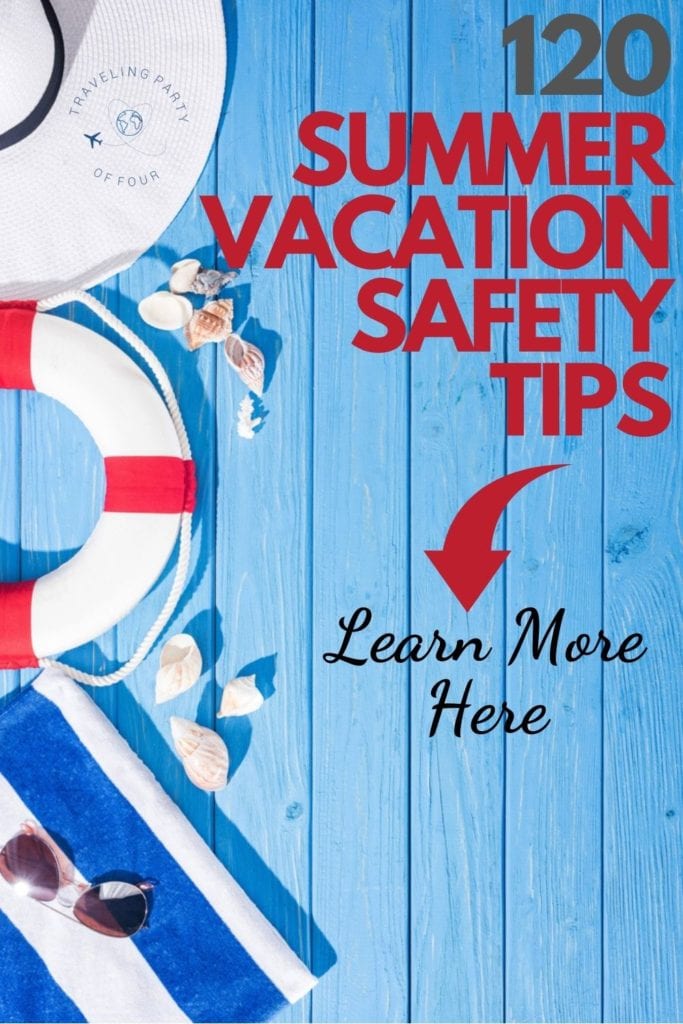
Affiliate Disclosure: There are affiliate links throughout this post. This means if you click on a link and purchase a product through that link, then I will receive a small commission for the referral. And that is kinda cool.
Summer Vacation Safety Tip #1: Start Before You Leave Home.
1) Prepare your home before you leave. Ensure the alarm system is functioning correctly and all of your security cameras are in working order.
2) Notify your trusted neighbor or your best friend that you will be gone.
3) Place your mail and newspaper on hold.
4) If you are going on a road trip, have your car serviced before your adventure to make sure it is road-trip-ready.
5) And prepare your car survival kit — here is what to include in your car survival kit.
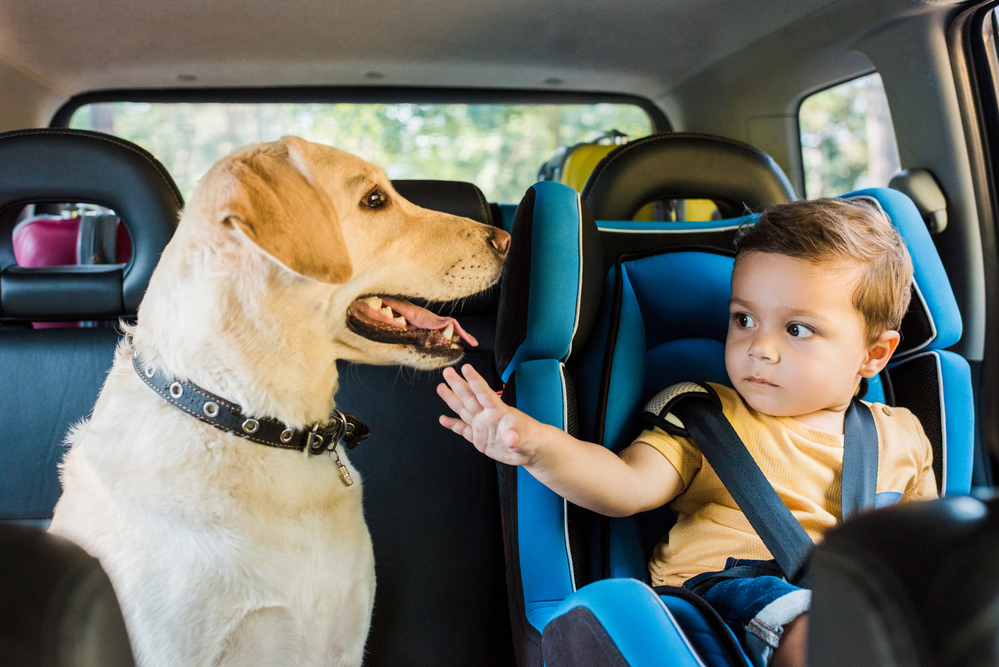
6) Get a good night’s rest the night before you leave, especially if you drive — drowsy driving is NOT safe driving.
7) Do your research before leaving for your destination.
- Check the travel advisories.
- Search Google for common scams in the area you are traveling to.
- Find out the political situation, health risks, and areas of high crime.
- And don’t forget to check the weather.
8) Scan a copy of your passport, email it to yourself and a friend. AND take a picture of your passport for your camera roll.
9) If you are traveling afar, know the location of the country’s embassy. Here is a website that lists embassies, consulates, and diplomatic missions by country.
10) Know that different countries have different emergency numbers. Here in the US, the emergency number is 911. Here is a list of emergency numbers by country.
Summer Vacation Safety Tips For Flying the Friendly Skies.
Staying safe from germs on an airplane has become quite the buzz this year due to COVID-19. Airlines and airports are taking steps to decrease your risk of exposure to COVID-19, including temperature testing, questioning about symptoms, contactless boarding, physical distancing, use of face coverings, adjustment of inflight food and beverage services, and enhanced cleaning.
For the latest CDC recommendations during the global pandemic, read this.
11) Pack hand sanitizer and sanitizing wipes.
12) Wipe down all surfaces before you settle in — you won’t be the only one doing this activity.
13) Don’t touch the seat pocket or anything in it. You never know what someone could have disposed of in that convenient pocket. YUK.
14) Avoid touching your face and mouth.
15) Leave your air vent on to encourage air circulation and ventilation.
16) If you can select your seat, avoid the aisle seat — the fewer people you are exposed to, the better.
17) Hydrate and avoid too much alcohol.
18) Consider compression stockings to minimize your risk of developing deep venous thrombosis.
Read more about how to stay healthy on an airplane here.
Water Safety Tips During Summer Vacation.
Remember those summer days spent on the water? Me, too.
Many people flock to the beach, the river, and the pool deck during the summer. The climate is ideal, and the water is warm; it’s perfect for summer fun.
Here are a few basic yet essential water safety tips for summer vacation.
19) Please make sure everyone in the family has had swim lessons and knows how to keep themselves above water. One of the top life skills you can teach your kids is how to swim. It is an absolute must.
20) However, even if your kiddos are fantastic swimmers, keep a close eye on them at all times.
21) Don’t drink alcohol and swim.
22) Hydrate. Hydrate. Hydrate. Stop for frequent water breaks. Avoid sugary, caffeinated, or alcoholic beverages as these may further hydrate you.
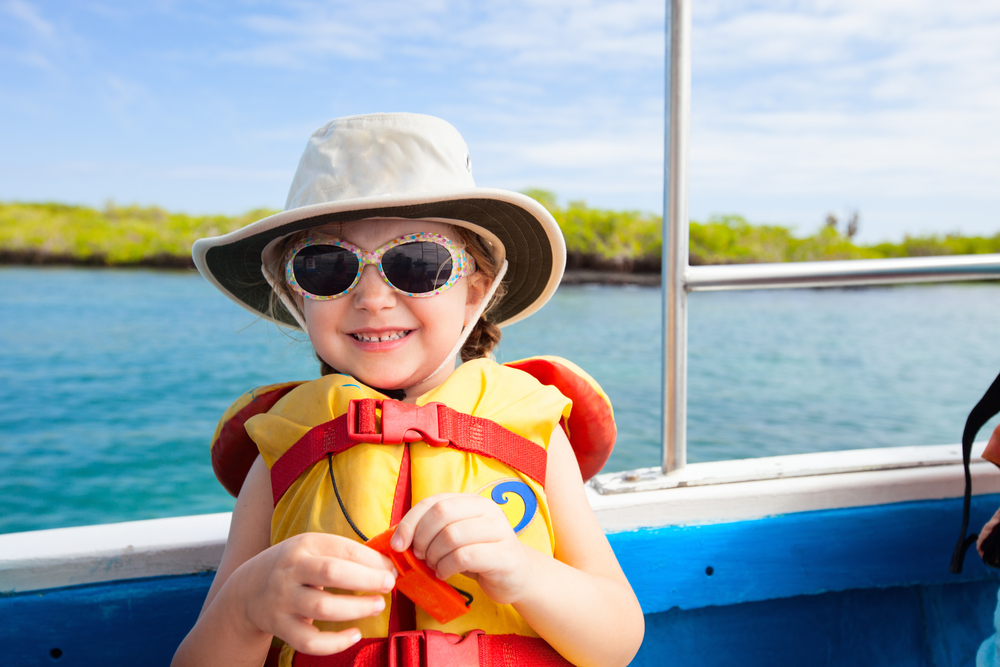
Summer Vacation Safety Tips to Avoid a Painful Sunburn.
That memorable sunburn, you know the one?
Sunburns are not only painful, but they are also dangerous. A little sun exposure is vital for Vitamin D production, which keeps your bones healthy and strong. But, too much sun exposure will increase your risk for skin cancers, including melanoma.
Plus, skin damage from sun exposure speeds up the aging process of the skin. You know, wrinkles?
23) Wear sunscreen with at least SPF 30. Apply generously in the morning, after swimming, after lunch, and every 60-80 minutes.
24) Wear a cap to protect your scalp from sunburn. Or a stylish, oversized beach hat.
25) Sport your cool shades with UVB protection.
26) If you are spending the day at the beach, consider a beach umbrella or a tent for the whole family.
27) Use Chapstick or lip balm with SPF.
28) Here is one last quick tip about the sun. If you are at the beach, the sand will be hot and can potentially burn tiny young feet. Have the littles wear protective shoes to avoid this problem.
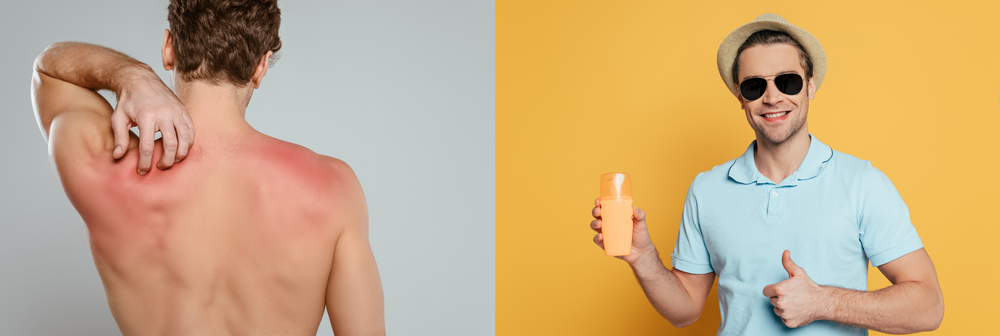
So, maybe you didn’t heed my advice, and you have a terrible sunburn. Here is what to do.
29) Take an anti-inflammatory such as Motrin or Aleve. These medications help with pain, too.
30) Apply calamine lotion, a moisturizer or gel with aloe vera or coconut oil.
31) Cool the skin several times a day with a wet, cool washcloth.
32) Stay hydrated.
33) If your sunburn is bad enough, your skin may blister. Do not break the blisters, as this will increase your risk of developing an infection. If the blisters break, keep them clean with soap and water and apply an antibiotic ointment.
34) Once your sunburn begins to heal, it may be itchy. Use Benadryl (diphenhydramine) ointment or hydrocortisone cream to relieve the itch.
35) Protect your skin from further sun damage by staying out of the sun until healed.
36) Seek medical attention immediately if you develop high fevers, severe pain, skin infection, dehydration, nausea, vomiting, or shaking chills.
The best treatment for sunburn is prevention.
Summer Vacation Safety Tips to Avoid Heat-Related Illness.
Summer is hot; that is the fun of it, right? While a warm climate is dreamy, a heat-related illness will ruin your day, or maybe even your vacation.
The human body regulates heat by sweating. However, sometimes you can be exposed to more heat than your body can handle. When your body loses too much fluid and salt through heavy sweating, heat exhaustion may occur.
Certain populations are more at risk of developing heat-related illnesses. These populations include age over 65, infants and young children, people with chronic disease, obesity, heart disease, and high blood pressure.
And those of you who exercise in the extreme heat and humidity have a higher risk, too.
Medications that can increase your risk of heat-related illness include diuretics (water pills), antidepressants such as amitriptyline, and the overactive bladder medication oxybutynin—also, anticonvulsants and opioids. If you are on routine prescription medication, check the precautions to be safe.
Symptoms of heat exhaustion include fatigue, weakness, headaches, dizziness, thirst, muscle cramps, nausea, vomiting, irritability, pale skin, and fast heartbeat.
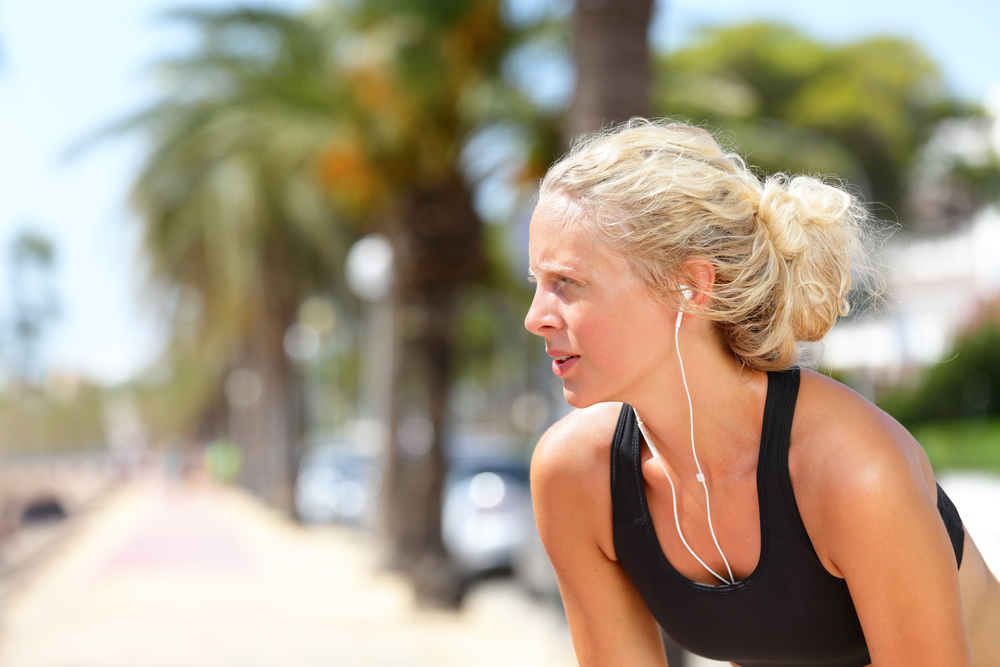
Here is what to do if you think your loved one is experiencing heat exhaustion.
37) Hydrate with cool liquids (non-alcoholic).
38) Please move to a cool area, either in the shade or indoors, where it is air-conditioned.
39) Move them to a cold shower if available. Or wipe them down with a cold, wet towel.
Heat exhaustion may lead to heatstroke if not addressed promptly and adequately.
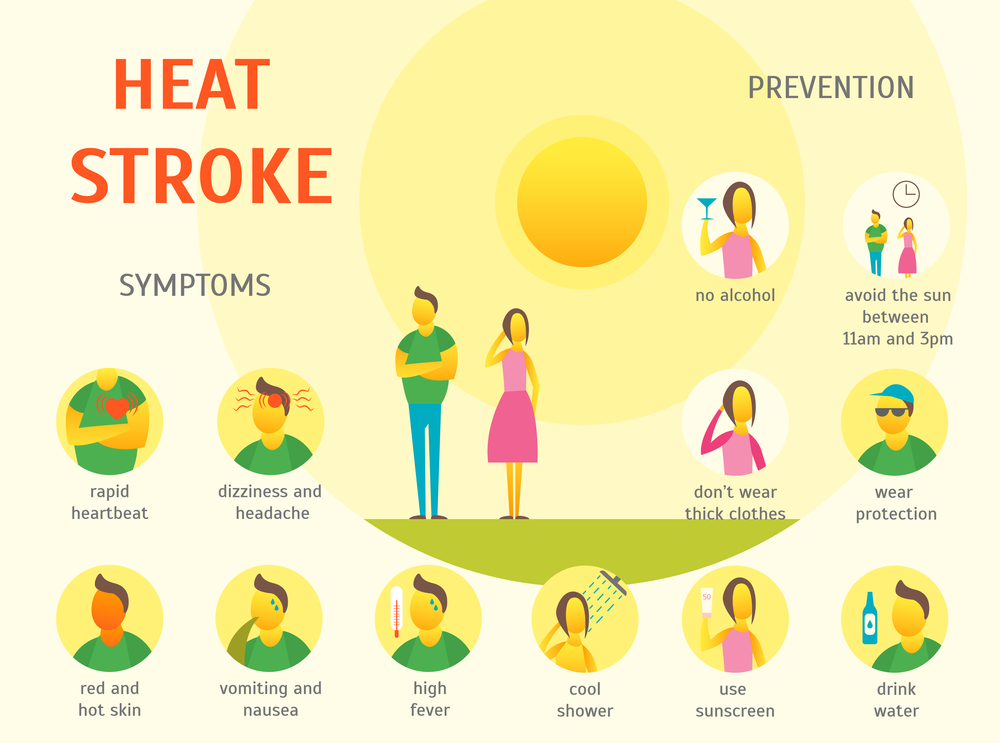
Heatstroke is a medical emergency. If you feel your loved one is experiencing heatstroke, activate EMS immediately.
Symptoms of heatstroke include throbbing headaches, dizziness, slurred speech, confusion, high fevers up to 103, red hot skin, shortness of breath, seizures, unresponsiveness, and sweating has usually stopped.
40) Move them to a cooler, shaded area.
41) Cool them off with wet towels or a cool shower.
42) Monitor their breathing and be prepared to begin CPR.
Heatstroke is a dangerous possibility in excessive heat and humidity. Here is a list of ten tips to avoid this issue.
43) The best way to prevent heat exhaustion and heatstroke is to limit your time in extreme heat and humidity. Consider staying indoors when the heat is at its peak, typically between 11 AM and 3 PM.
44) Wear light, loose-fitting clothing.
45) Stay indoors in extreme heat.
46) Avoid outdoor activities during the hottest part of the day.
47) Wear sunscreen and re-apply often. According to the CDC, sunburn affects your body’s ability to cool down and can cause dehydration.
48) Wear an oversized cap and shades that block both UVA and UVB light. When choosing sunglasses, look for approval from the Skin Cancer Foundation Seal of Recommendation for safe and effective sun protection.
49) Stay hydrated. Stick to non-sugary and non-alcoholic drinks.
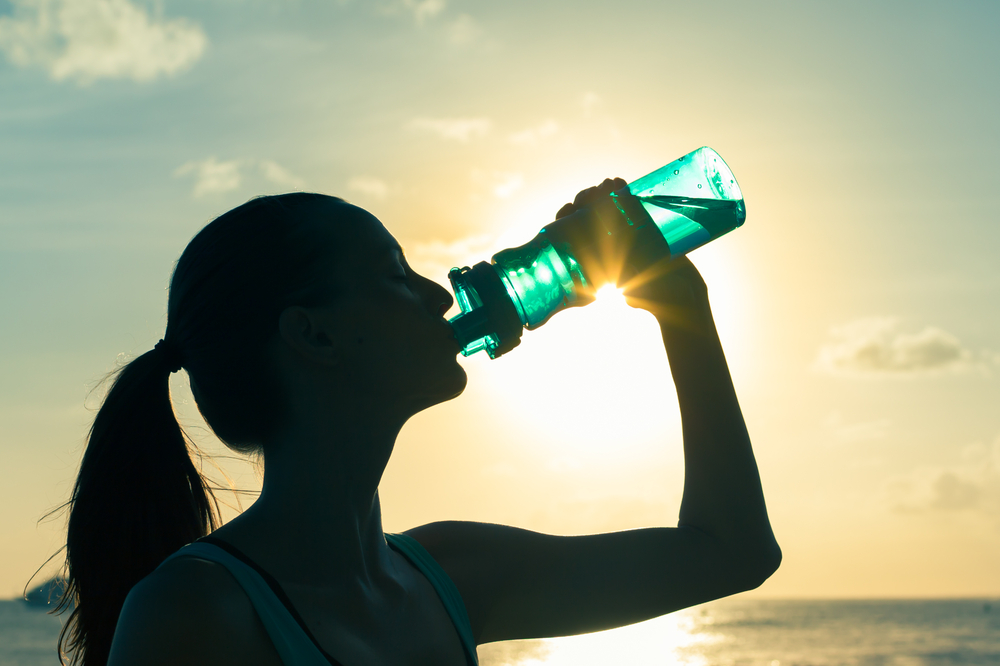
50) Replace electrolytes with sports drinks.
51) Hydrate your pets.
52) Avoid heavy meals.
For more tips on preventing heat-related illness, read this from the Centers for Disease Control and Prevention (CDC).
NEVER Leave Your Child or Pet in a Hot Car With No Air-Conditioner.
53) NEVER leave a child or a pet in your vehicle. Even with the window cracked, the heat in a car can increase to deadly levels quickly.
Here are a few tips to avoid this unfortunate and sometimes fatal situation.
54) Leave a stuffed animal buckled into the car seat. When you place your child into the car seat, put the stuffed animal in the front seat. The stuffed animal will remind you that your child is in the back seat.
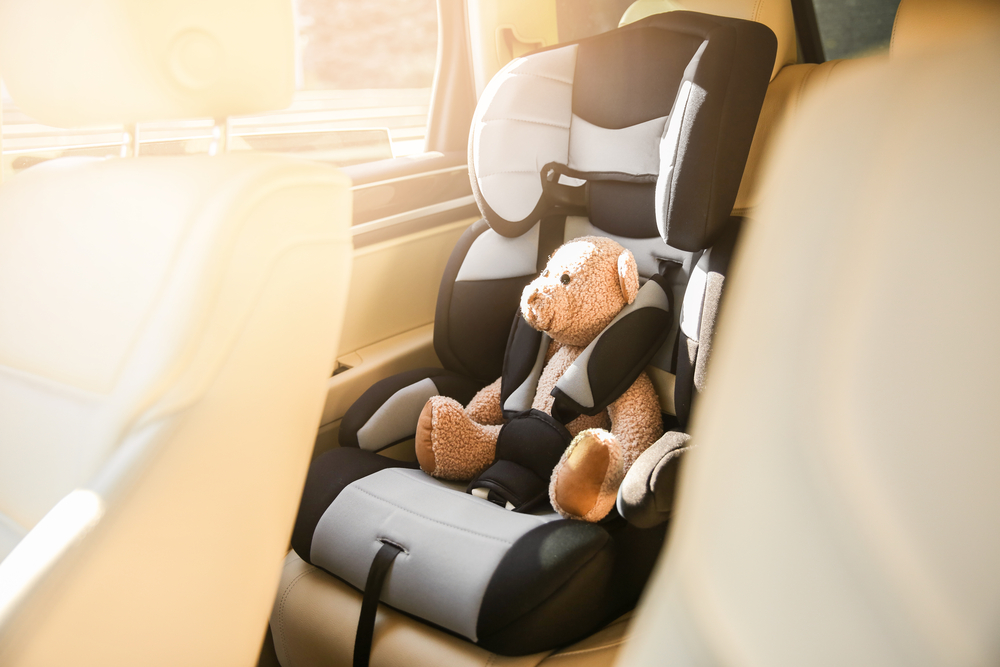
55) Always do a headcount when leaving the car to assure no one is left behind.
56) And always look before you lock the car door.
Summer Vacation Safety Tips for the Perfect Beach Day.
57) Always choose a beach with a lifeguard on duty. They will be watching from their lifeguard stand with a red tube hanging. You can’t miss them. Show the lifeguard stand to the kids and teach them to go there if they get lost.
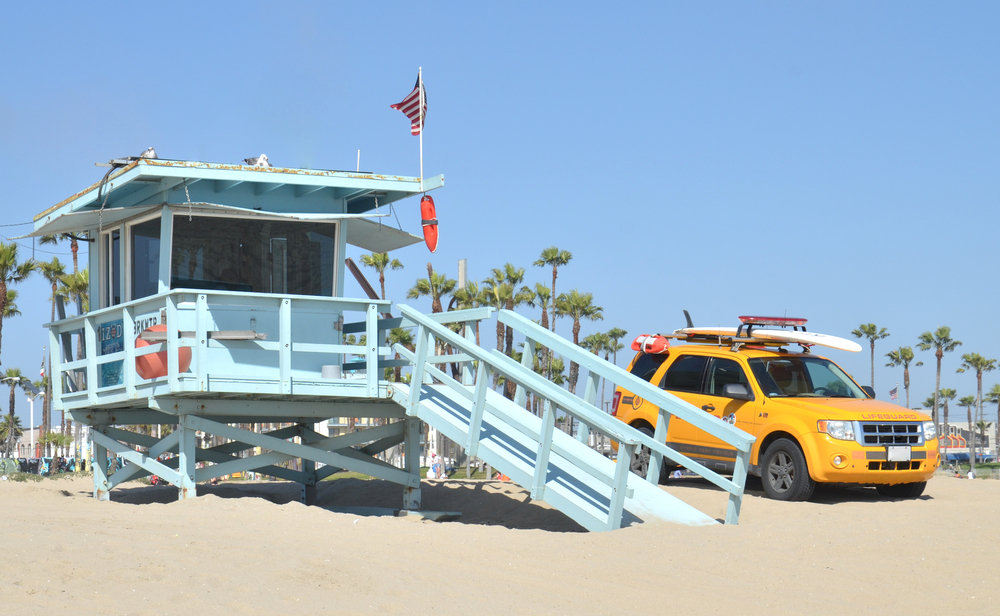
58) Always respect the sea. Beaches provide flags for the tide, swim safety, and riptide warnings. Take appropriate precautions based on the signage.
59) Use a floatation device for the littles at all times, even if they are competent swimmers.
60) THIS TIP IS OF UTMOST IMPORTANCE: Supervise your kids at all times, whether they are confident swimmers, wearing floaties, or a lifeguard is on duty. Always keep a close eye on your kiddos.
61) Keep your children close at all times; they can fall and get caught up in a wave in the blink of an eye. Adults can, too. Be careful.
62) Apply sunscreen every 60-80 minutes and after swimming. Teach your kids the importance of sunscreen.
63) Hydrate all day long. Then hydrate some more.
64) Don’t drink alcohol and swim.
65) Bring shade like an umbrella or tent; it gets so hot out there. You will need occasional respite.
66) And tell your kids, “DO NOT throw sand.” Sand can cause eye injuries, even to people not involved in the sand fight.
Rip Tides are Scary — here is how to spot them and what to do if you get stuck.
Rip currents account for nearly 80% of beach rescues. A rip current is a rush of water headed out to sea. According to NOAA (National Oceanic & Atmospheric Association), a rip current is “not going to pull you underwater. It’s just going to pull you away from shore.”
67) If you get caught in a rip current, don’t fight it; swim parallel to the shore out of the current. If you can’t escape, float or tread water, and wave for the lifeguard.
68) Lifeguards are fully aware and are watching for this exact situation. Wave and yell to let them know you need help.
For a rip current survival guide, visit NOAA here.
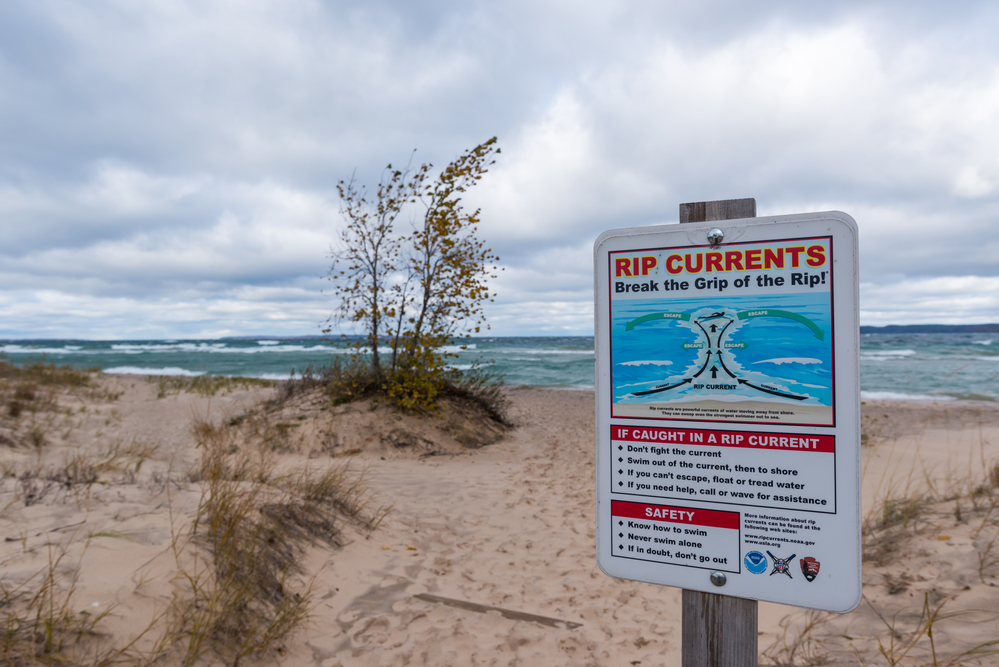
Mosquitoes — The Official Bug of Summer.
Mosquito bites are itchy, painful, and downright annoying. But, those nasty little pests can cause more problems than just a minor bug bite.
Mosquitoes can spread nasty viruses to people, including the Zika virus, West Nile virus, Chikungunya virus, dengue, and malaria.
Sounds awful, doesn’t it?
Mosquito season begins in summer and ends in the fall, although it seems we have mosquito issues year-round down here in Florida.
Tips on managing the mosquito population, avoiding bites, and treatment when it happens.
69) Mosquitoes lay eggs in standing water. So, dump over that birdbath, turn over the buckets, and ensure your potted plants have holes at the bottom that properly drain. Avoid standing water, or you will encourage multiple mosquito generations. If you have kiddos, toss the water from the toys and the kiddie pools, too.
70) Shut all doors and windows, and make sure screens are secure and not ripped to keep mosquitoes out of your room. You will never understand how something so small can rock your world until you have slept with a mosquito and are covered in itchy bites when you wake up. No amount of coffee will be of comfort.
71) When possible, wear clothing covering your arms, legs, and ankles (mosquitoes love ankles).
72) Avoid mosquito happy hour, which is usually dusk and dawn.

73) This isn’t going to sound nice, but hang around people mosquitoes love (I am only half kidding here). You probably know one or two of these people. Mosquitoes LOVE my husband, and I never get bit when he’s around. I am sure there is some science behind this theory (or maybe not).
74) Use an EPA-registered insect repellent. According to the CDC, EPA-registered insect repellents are safe and effective to use, even in pregnant and breastfeeding women.
Here is a comprehensive infographic on the safe and effective use of insect repellent.
- Always before using insect repellent, read the label for proper instructions on use and precations.
- Keep insect repellent away from kids.
- Insect repellent should be applied only by adults.
- Keep insect repellent away from the eyes.
- Apply to exposed skin, not to skin under clothing.
- When applying to the face, spray repellent on the hands and rub on the face. Don’t spray it in your face.
- Please don’t apply to kid’s hands as they may rub it in their eyes.
- If it gets in the eyes, rinse with water immediately.
- Do not apply insect repellent on open wounds, rashes, or damaged skin, including sunburnt skin.
Poison Ivy, Oak, and Sumac.
Skin exposure to urushiol, the oily resin in poison ivy, oak, and sumac, causes itching, rash, swelling, and blisters. The rash may develop up to 48 hours after skin exposure. AND, may last up to three weeks.
75) Prevent exposure by avoiding the plants, wearing long sleeve shirts and long pants tucked in socks.
76) If you are exposed, wash your skin immediately. Avoid scratching with your fingernails; this may lead to a secondary infection.
77) And if the rash is severe, the blisters begin to drain pus, you develop fevers, or if the outbreak does not improve, seek medical attention.
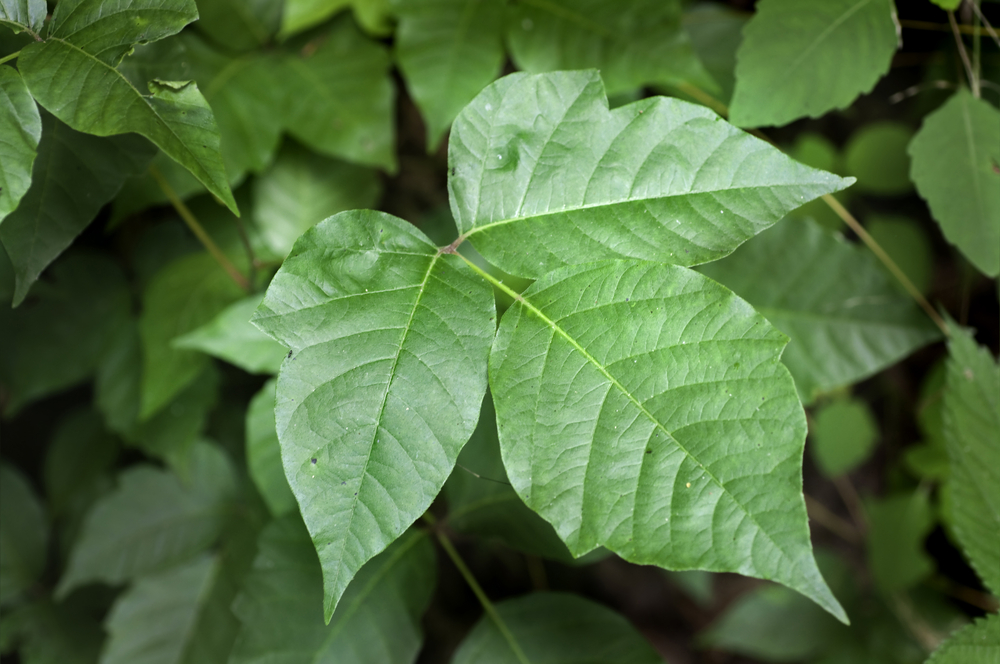
Here is what to do if exposed to Poison Ivy, Oak, or Sumac.
78) Cool Compresses.
79) Ointments to relieve itching: Calamine, Benadryl (diphenhydramine).
80) Oatmeal Baths. I know it’s old fashioned, but it works.
81) Oral antihistamines such as Benadryl (diphenhydramine).
82) Over the counter Pain Relievers.
83) Seek medical attention for a severe reaction that includes shortness of breath, pain or difficulty swallowing, facial or tongue swelling, or a known history of this type of response to exposure to these plants.
84) Pets can also pick up poison ivy. If your pup is exposed, use protective gloves, and bathe him to remove the oils as he has the potential to expose you.
Summer Vacation Safety Tips for The Fourth of July.
Fireworks and Sparkler Safety Tips.
The Fourth of July isn’t complete until the fireworks show. Fireworks can result in severe burns and eye injuries and are best left to the professionals. However, if you decide to host your own fireworks extravaganza, here are a few tips to keep you and your loved ones safe.

85) I will reiterate the recommendation that setting off fireworks is best left for the professionals. But, if you decide to host a fireworks show, here are a few tips.
86) Make sure they are legal where you are shooting them off.
87) M-Class Fireworks are illegal. In Florida, ALL fireworks are illegal to sell or set off.
88) Set up an area clear of cars and homes. Make sure the foundation is hard and flat.
89) Don’t drink alcohol and shoot fireworks.
90) NEVER let children handle fireworks.
91) Sparklers are pretty, festive, and fun. But they are hot and will burn little (and big) fingers. Sparklers can burn up to 1800 degrees, hot enough to melt glass and aluminum. Supervise kids at all times when they are using sparklers.
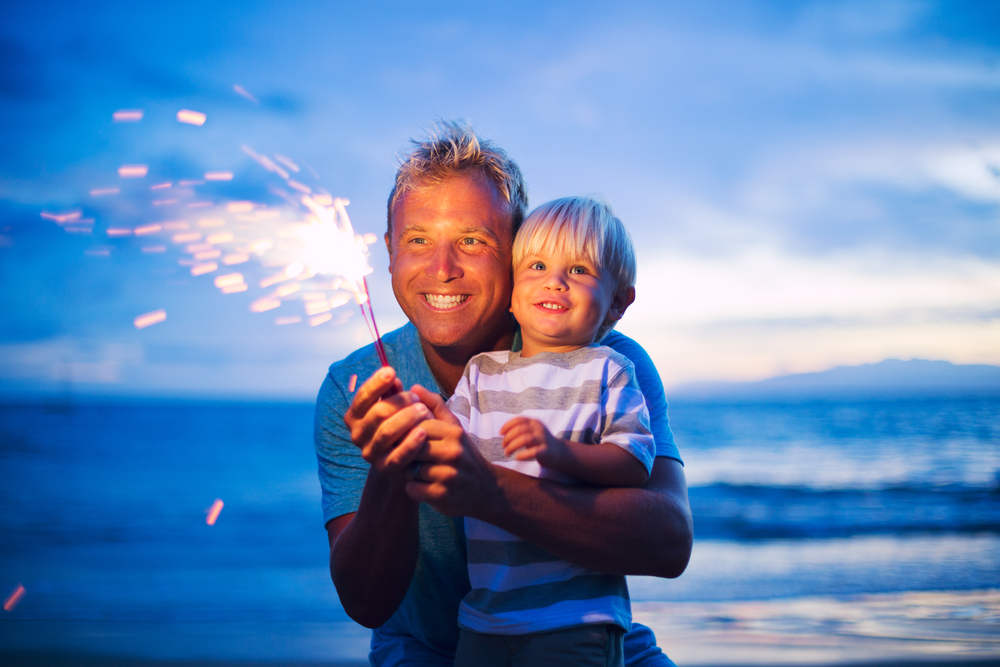
92) Better yet, give them glow sticks, a safer yet still fun alternative to sparklers for kids.
93) Don’t set off a firework in your hand. It seems like this would be an obvious safety precaution, but it happens, and the consequences are no good.
94) Wear protective goggles when setting off fireworks.
95) If you light a firework and it does not work, DO NOT TRY TO RE-LIGHT IT. Let it be for about 20 minutes, then soak it in water and dispose of it. Never re-light a dud.
96) Be respectful of your neighbors, dogs, and veterans.
97) Don’t be that dude shooting off fireworks every day or into the night.
98) Only use fireworks outside.
99) If there is a burn injury to the skin or the eyes, seek medical attention immediately.
Pool Safety Tips.
100) Never leave a child unattended.
101) If a child cannot swim, they need to wear a life jacket at all times when partaking in activities in or around the pool, at the beach, or on the boat.
102) If you are taking your kids to a public pool, make sure you pick a pool with a lifeguard.
103) However, the lifeguard is not your babysitter. Please keep an eye on your child at all times.
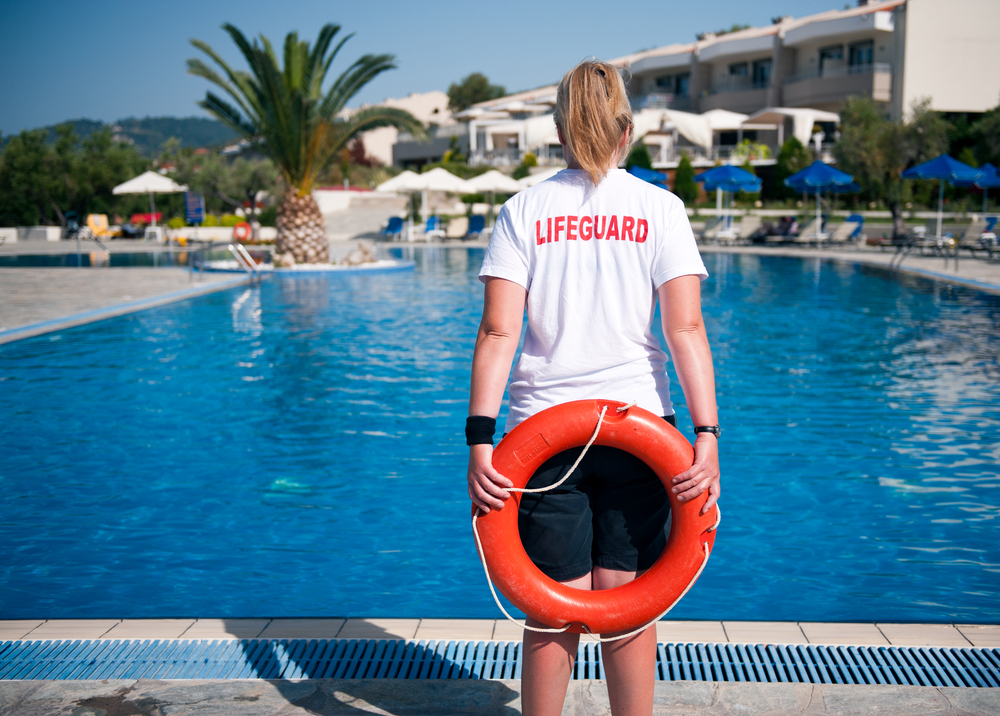
Boat Safety Tips.
We joined a boat club so we could isolate ourselves on the water during the pandemic without boat ownership’s responsibilities. It’s been a blast tubing, learning how to kneeboard, and enjoying lunch on an uninhabited island.
Responsible and safe boating can save a life. Here are essential boat safety tips.
104) Teach your children how to swim — one of the top life skills you can give your child.
105) Enroll in a state-approved boating safety course to learn the local laws.
106) Always have a United States Coast Guard-approved life vest available for each passenger on the boat. And all kids must wear their life vest while on the water, even if they are confident swimmers.
107) Do not drink alcohol and boat.
108) Apply sunscreen before you board, and re-apply often. Avoid using spray sunscreens; they make the deck slippery and create a risk of tripping someone up and causing an injury.
109) No running on the boat. And everyone needs to be seated at all times when in motion.
110) Instruct the kids to never dive in headfirst into the river or ocean. It’s often difficult to judge the water’s depth; if it is shallow, there is a risk of a neck injury.
111) Make sure your flares are functional in case of an emergency.
112) Always know the weather report before you head out on the water. Cancel if the weather is inclement.
113) Request a Boat Safety Check with the United States Coast Guard Auxillary here free of charge.
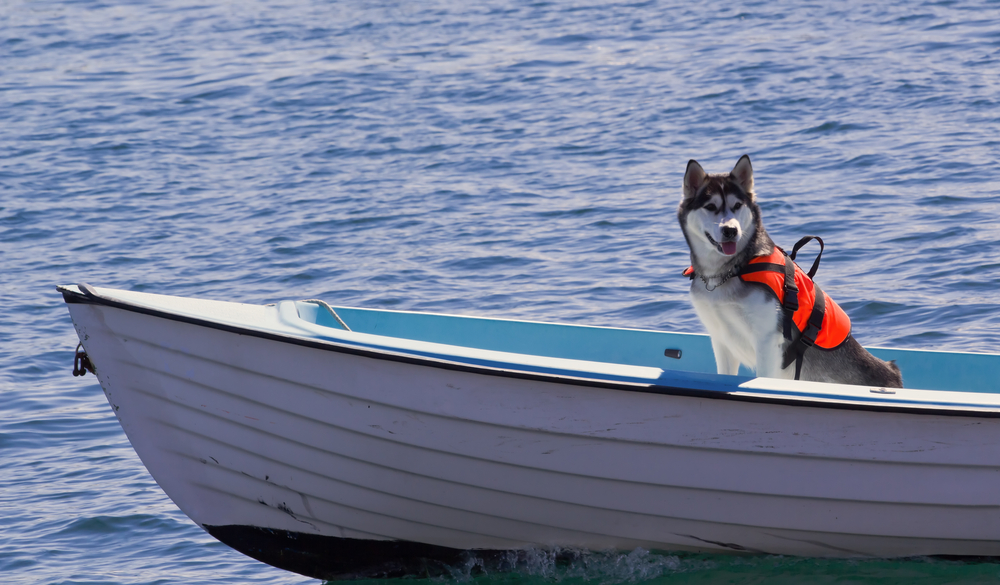
Summer Vacation Safety Tips When Caring for Your Pup in the Summer Heat.
Razor has been a fantastic road trip companion during the pandemic. He’s a traveling champ. Many families travel with their furry best friend; keep them safe, too.
114) Be careful not to overdo it with pets in the heat.
115) Protect their paws from scorching pavement and hot sand.
116) Hydrate frequently.
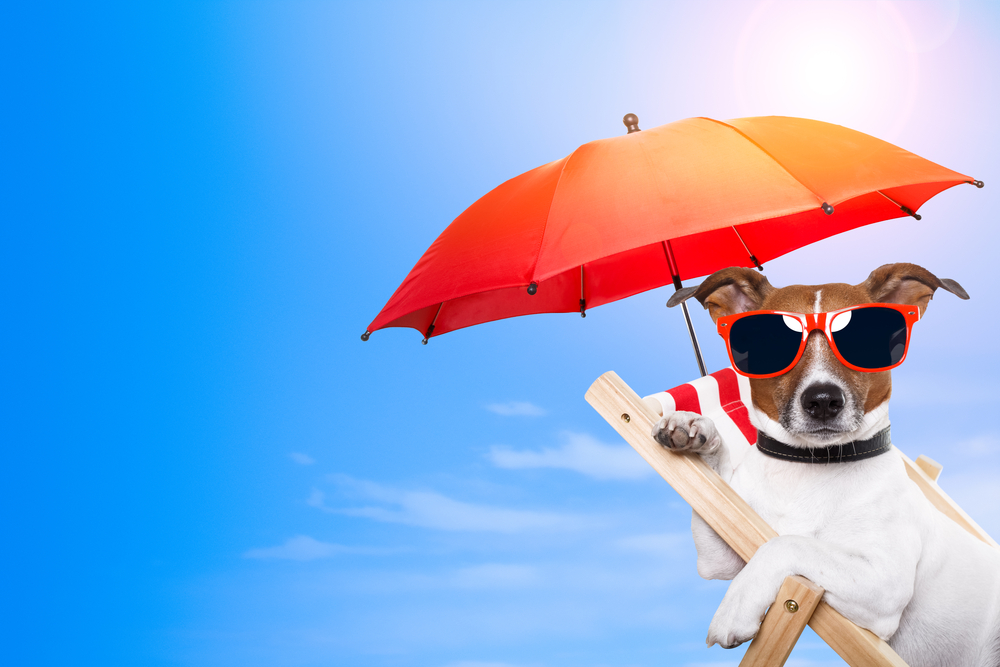
117) Watch for symptoms of becoming overheated — heavy panting, labored breathing, drooling, bright red gums, vomiting, diarrhea, and unsteady gait. If your pup shows signs of heat exhaustion, move them to the shade or inside in the air conditioning, give them water, wipe them down with a cool, wet towel, and take them to the vet ASAP.
118) NEVER leave your pet in the car. The heat in the vehicle can increase to dangerous levels quickly and can be fatal to pets.
119) Pups need sunscreen, too, especially if they have a thin coat. Apply pet-friendly sunscreen if you plan on being out in the sun for extended hours.
120) If your pup is joining the family on the boat, equip him with a well fitted, bright-colored life vest. And always keep an eye on him.
Pack a First Aid Kit.
Here is what you need to pack in your first aid kit.
**The checklist does not include any emergency type medication (except for epinephrine). In the event of an emergency, seek medical attention immediately.**
- Stomach medications ~ Imodium, Pepcid (or any of the “purple pills for heartburn”), Pepto-Bismol, and TUMS.
- Motion Sickness ~ Ginger candy, scopolamine patches, and sea bands all help with motion sickness. Don’t forget your motion sickness bags. Ginger beer helps, too. Ondansetron is an anti-nausea medication prescription, and it is excellent for motion sickness.
- Aches, Pains, and Fevers ~ Pack either acetaminophen or ibuprofen for minor aches and pains, including headaches. These are also fever reducers. Include both adult and kids doses.
- Allergies ~ My daughter has multiple food allergies, so we travel always with liquid Benadryl and two EpiPens.
- Ointments ~ For bug bites and rashes, always bring Benadryl and Cortisone Ointments. Include Aquafor for dry, cracked, or irritated skin. Aquafor is a skin protectant and is excellent on burns as well. And gel or lotion with aloe vera.
- Cold/cough ~ Pack a decongestant, and some cough drops, just in case.
- Basic First Aid Items ~ You can purchase a Basic First Aid Kit on Amazon. Or you can just add some Bandaids, gauze, tape, disinfectant wipes, wound closure strips, and maybe even some liquid bandage to a large ziplock bag.
One Last Topic: Travel Insurance; Purchase or Not?
Here is my simple answer; if you are going on a weekender not far from home, I would say no. But, if you are going to spend the week on a ship in the Galapagos or touring through Iceland, yes, you should.
World Nomads (I am an affiliate) provides travel insurance for independent travelers and families from over 140 countries. The plans are flexible and straightforward for international or domestic travel. AND, you can buy and claim from anywhere in the world.
I have covered a range of summer vacation safety tips in this post. I hope you found the information useful for your upcoming summer travels, even if they are close to home.
Have a fantastic summer. And be safe.




Great tips! Especially repellants and sanitizers which is really necessary everywhere.
Always. Especially in the summer months.
So many excellent tips! I’ll be saving this for later.
Yes, I hope I didn’t leave anything out.
You do think of every single aspect of safety on holidays; I love these practical guides! All we need now is…. being OK to go on a vacation!
Yes, I would love that.
As always – great list with all the most important information!
My brother need to read Tips to Avoid a Painful Sunburn, that’s his biggest problem every time when we travel so sea 😀
Mine, too. It only takes about ten minutes and I have a sunburn.